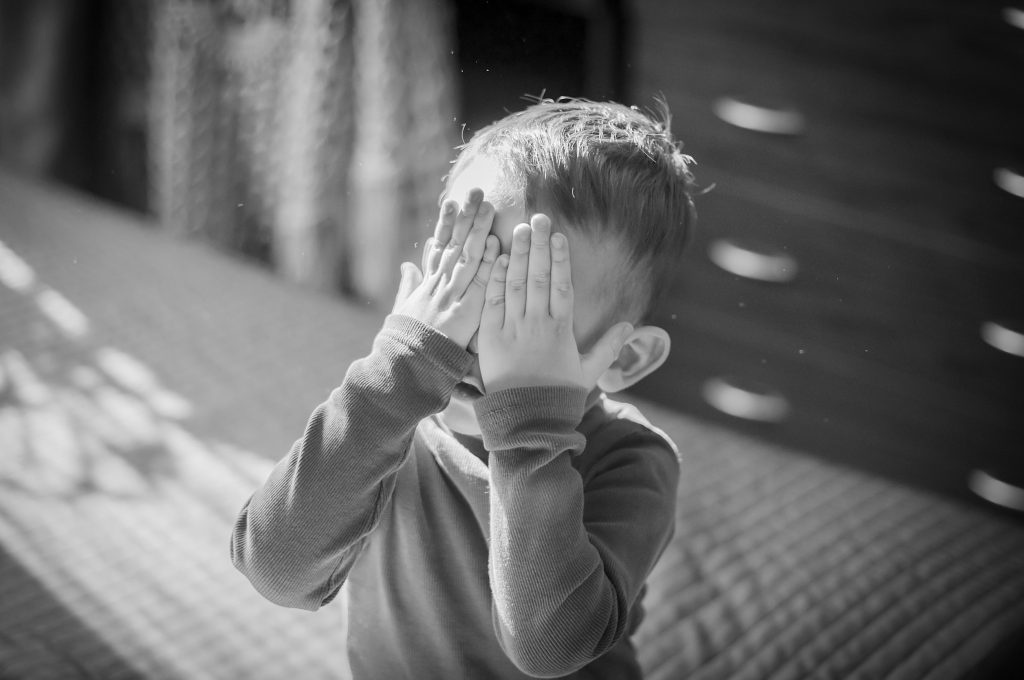
Every parent wants to shield their child from anxiety. We childproof our homes, encourage healthy habits, and try to build their self-esteem. Yet, we often overlook one of the most powerful sources of childhood anxiety: the emotional climate of our own marriage. Many parents think they’re protecting their kids by not fighting in front of them. However, a far more damaging behavior can be flying under the radar. It’s the unresolved, silent tension that fills a home with a sense of unease. Kids are incredibly perceptive, and this unspoken hostility can be one of the primary anxious children causes.
The Marital Behavior: Silent Contempt
This isn’t about loud arguments or shouting matches. It’s about the quiet, icy atmosphere that follows a disagreement that never gets resolved. This behavior is called silent contempt. It shows up as dismissive eyerolls, heavy sighs when your partner speaks, or a stony silence that lasts for days. You might be in the same room, but you are emotionally miles apart.
You think you’re hiding it, but you’re not. The lack of warmth, kindness, and connection between you and your partner is palpable. Your home, which should be a safe haven, becomes a field of emotional landmines that your children have to navigate every single day.
Why It’s Worse Than Yelling
A loud argument can be scary for a child. However, if they also see you resolve it—with apologies, hugs, and a return to warmth—they learn a valuable lesson. They learn that conflict is normal and that relationships can be repaired. It provides a model for healthy conflict resolution.
Silent contempt offers no resolution. There is no clear start or end. The tension just lingers, creating a chronic, low-grade stress. This uncertainty is what fuels a child’s anxiety. They don’t know what’s wrong, why it’s happening, or how to fix it.
Kids Become Emotional Detectives
When the emotional environment is unpredictable, children go on high alert. They become hyper-vigilant, constantly scanning their parents’ faces and body language for clues. They are trying to figure out if it’s a “good day” or a “bad day.” This is an exhausting and stressful job for a small child.
Their nervous systems are in a constant state of readiness, waiting for the next sign of trouble. This hyper-awareness is a classic symptom of anxiety. They are trying to make sense of a confusing and scary emotional world that the adults around them refuse to acknowledge.
They Internalize the Blame
Children are naturally egocentric. They tend to believe that the world revolves around them. When they sense that their parents are unhappy with each other, their first instinct is to assume it’s their fault. They think, “If I were quieter, or got better grades, or didn’t make a mess, then Mommy and Daddy would be happy.”
This self-blame is a heavy burden for a child to carry. It can lead to feelings of guilt, shame, and worthlessness. This is a significant factor in many anxious children causes, as they feel responsible for managing the emotional state of their parents.
It Models Unhealthy Conflict Resolution
The way you and your partner handle disagreements teaches your children how to manage conflict in their own lives. When they witness silent contempt, they learn that the appropriate response to conflict is withdrawal, passive aggression, and emotional punishment. These are poor tools for building healthy relationships.
They may grow up to be adults who are afraid of conflict or who replicate the same toxic dynamic in their own partnerships. You are providing them with a flawed blueprint for intimacy and connection.
How to Break the Cycle
The first step is to acknowledge the issue with your partner. You have to stop pretending the kids don’t notice. Commit to resolving conflicts respectfully, even when you disagree. This means no silent treatment, no eye-rolling, and no passive aggression.
Learn to argue constructively. Use “I” statements to express your feelings without blaming your partner. And, most importantly, let your children see you make up. A simple apology or a warm hug in front of them can undo much of the damage caused by the tension.
Your Relationship Is the Blueprint for Theirs
Your children’s sense of security is directly tied to the health of your marital relationship. The emotional tone you and your partner set in the home becomes their inner world. Modeling a relationship based on respect, kindness, and healthy conflict resolution is one of the greatest gifts you can give them. It teaches them that home is a safe place and that love is a secure force. Addressing the silent contempt in your marriage is not just about you; it’s about breaking a cycle and giving your children the emotionally stable foundation they deserve.
What are your tips for managing disagreements respectfully in front of your kids? Share them in the comments.
What to Read Next…
- Don’t Kill Your Relationship Over Money: 6 Ways to Handle Financial Disagreements
- 9 Types of Guys Who Are Bad at Relationships (But Won’t Admit It)
- 10 Relationship Promises That Are Actually Manipulation
- 9 Signs Your Relationship Isn’t a Safe Space for Your Partners Honest Feelings
- 9 Innocent Gestures That Can Destroy Trust in a Relationship

Latrice is a dedicated professional with a rich background in social work, complemented by an Associate Degree in the field. Her journey has been uniquely shaped by the rewarding experience of being a stay-at-home mom to her two children, aged 13 and 5. This role has not only been a testament to her commitment to family but has also provided her with invaluable life lessons and insights.
As a mother, Latrice has embraced the opportunity to educate her children on essential life skills, with a special focus on financial literacy, the nuances of life, and the importance of inner peace.







